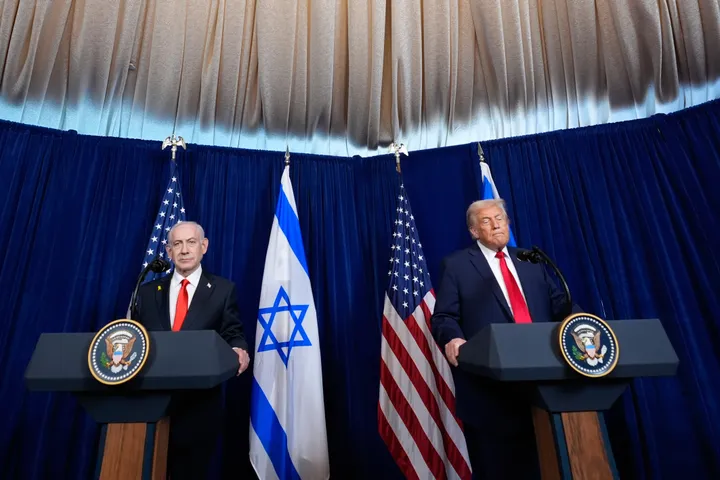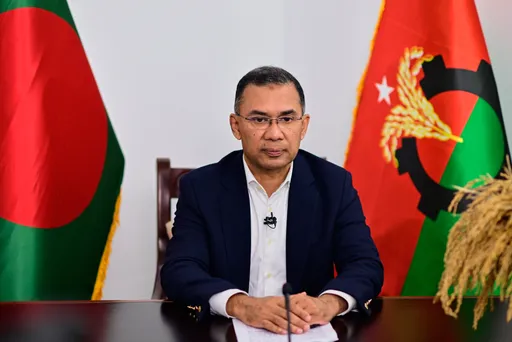As NATO marks its 70th anniversary at a special summit on Tuesday, the organisation must overcome some of the most serious challenges it has ever faced.
The two-day long meeting, which will be held in Watford near London, comes amid domestic scandals in several member states, such as US President Donald Trump’s impeachment inquiry and France’s grappling with the Yellow Vest movement.
While experts view NATO as one of the most successful military alliances ever, cracks have begun to emerge between the partners over a number of issues. These include how to deal with the perceived threat from Russia, and disagreements over the amount of money each state should contribute to defence spending.
“The most important question at this NATO summit will be whether US President Donald Trump reaffirms the commitment of the United States to Article Five of the North Atlantic Treaty,” said Matthew Bryza, a former US diplomat and a senior fellow at the Atlantic Council.
The clause in the NATO agreement requires all members to respond to an attack against any of its members. Essentially, an attack on one, is an attack on all.
“In the past, President Trump has hesitated to reaffirm this US commitment, and even questioned whether the entire NATO alliance is ‘obsolete’,” Bryza told TRT World.
While the alliance survived the tensions of the Cold War, recently heads of state, such as French President Emmanuel Macron, have openly speculated about the organisation’s future.
“I don’t know, but what will Article Five mean tomorrow?” he said during a comprehensive interview with The Economist,raising suspicions that like Washington, Paris may also fail to commit to the critical article.
“Rarely has NATO not been under verbal siege over these past few months,” wrote Judy Dempsey, a non-resident senior fellow at Carnegie Europe and Editor-in-Chief of Strategic Europe, last week.
“The fact that that this meeting will not be called a summit shows how NATO’s 70th birthday is not being celebrated with great fanfare but instead with a degree of self-doubt, if not anxiety,” Dempsey asserted.
Who is brain dead?
Macron further argued that “what we are currently experiencing is the brain death of NATO”. As he casts doubts on NATO, Macron has been thinking out loud about his plans for an EU army to replace the organisation.
His comments, which were made in conjunction with disparaging remarks about Turkey’s recent offensive against PKK-affiliated YPG terrorists in Syria, sparked anger in Ankara.
The YPG is the West’s effective proxy force in Syria but is also the Syrian branch of the PKK terrorist organisation, which has killed upwards of 40,000 Turkish citizens, including women and children, in a three-decade terror campaign.
Turkey, the US, and the EU, consider the PKK a terrorist organisation but this consideration appears to be ignored by Western states when it comes to Syria. The group currently has an armed presence in northern Syria across the Turkish border.
Macron’s comments prompted a strong rebuke by Turkey’s President Recep Tayyip Erdogan, who has repeatedly warned both the US and EU leadership not to ally with the group.
“I’m addressing Mr Macron from Turkey and I will say it at NATO: You should check whether you are brain dead first,” Erdogan said.
"We do not know what France means for NATO but Turkey, with its second-largest army, is its most important member,” he added. Turkey has recently increased its defence spending significantly to keep in line with Trump's NATO defence spending requirements.
The YPG issue is, however, a major obstacle the organisation must overcome if it is to prosper in the future. The terror group is the focus of serious infighting within the alliance, with Ankara vowing that it will not approve a defence plan regarding Poland and the Baltics, aimed at countering Russia unless its concerns about the YPG are taken seriously by NATO.
“The dispute between Turkey and the rest of NATO regarding planning for the defence of Poland and the Baltic states is a real problem for the Alliance. Macron's ‘brain-dead’ comment was prompted largely by his anger at Turkey launching Operation Peace Spring in Syria without coordinating with the rest of NATO,” Bryza said.
“I fear it will be very difficult for other NATO members to appreciate fully why Turkey is blocking such planning. Hopefully, all the Allies will be able to resolve this difficult dispute and clear the way forward for crucial cooperation both in deterring Russian aggression in NATO's east and in defeating YPG terrorists in Syria,” Bryza added.
Will allies agree on budget burden?
Trump’s ‘money talks’ attitude highlights the fact that finance is another key concern for the alliance ahead of the summit.
Trump has previously accused NATO partners of not accepting their share of the NATO financing burden, which the US has demanded should be at least two percent of their GDP.
“We’re the schmucks that are paying for the whole thing, Frankly, many countries owe us a tremendous amount of money for many years back, where they’re delinquent, as far as I’m concerned, because the United States has had to pay for them,” Trump said in July.
At the summit, Bryza is almost sure that the president will “press all NATO allies to fulfill their commitment from the Wales summit of 2014 to allocate 2 percent of their GDP to defence spending”.
“President Trump has actually been successful in increasing the number of NATO allies reaching the two percent level, which under his presidency has increased from four NATO members to seven, leading to an additional $41 billion in defence spending by all NATO members per year,” Bryza added.
Under Trump’s pressure, Germany, the powerhouse of the EU also declared that it will accept the two percent threshold by 2021.























